Explore the best places
Results for Palácio da Pena in Portugal
Casa da Formiga
- hotels
Cambres
5100-385, Lamego
Situated on Quinta da Formiga, on the left bank of the rivers Douro and, this accommodation Varosa lies on the route of the "Cistercian Monks". The House sight-if the three bridges linking the banks of rivers and enjoy one of the best landscapes in the region. The vineyards surrounding the House of Ant are owned by the same family for four generations. It offers rooms with private bathrooms, TV, central heating, air conditioning and wireless internet.
Casa da Lavandeira
- hotels
Rua da Lavandeira
4640-024, Ancede
Lavandeira's House is an 18TH century house located in Baião, a framing of rare beauty, overlooking the River Douro. In harmony with the surrounding space, this House offers nine rooms, two lounges, games room, bar and a typical kitchen. In addition, does not relieve all existing facilities a modern hotel unit. In addition to accommodation, Casa da Lavandeira explores the strand of agrotourism and hosts various events.
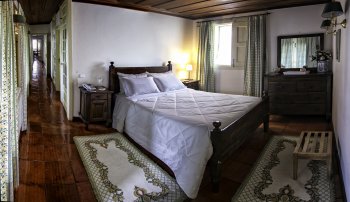
Miradouro de São Gens
- country
- leisure
Rua da Piscina
6000, Castelo Branco
The views it offers over the historic area of Castelo Branco and the region greatly reward the effort required to reach it. It is located close to the Castle and opened in 1941, built to “hide” the water supply tanks and later reclassified during the Polis program. The garden benches and shadows invite you to take a well-deserved rest, while contemplating the panoramic view that goes from Serra da Estrela to the border.
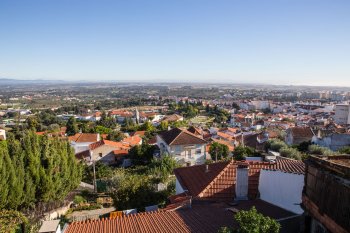
Miradouro do Pico do Areeiro
- country
- leisure
Pico do Arieiro
9230-212, São Roque do Faial
It is the second-highest peak on the island of Madeira, with an altitude of 1818 meters. It offers a magnificent view and, when the weather is good, you can see the neighboring island of Porto Santo. It has an inn, a restaurant and a souvenir shop and is one of the most visited peaks on the island due to good access and the trails that connect it to Pico das Torres and Pico Ruivo, which are very well-prepared and signposted.
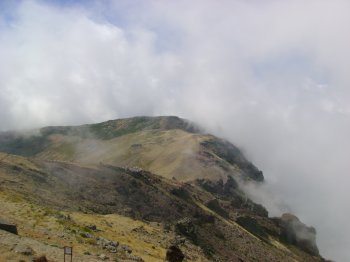
Arcada da Lapa
- heritage
Praça da República
4710-305, Braga
Built in 1715, by the spot where the medieval wall used to be, it had the castle behind, whose donjorl was preserved. In front of the arcade was the Campo de Santa Ana, ordered by D. Diogo de Sousa in the XVI century. Between 1761 and 1767, at the time of the archbishop D. Gaspar de Bragança, the central nucleus of the arcade was opened and the Igreja da Lapa (church), with an André Soares drawing, was built.
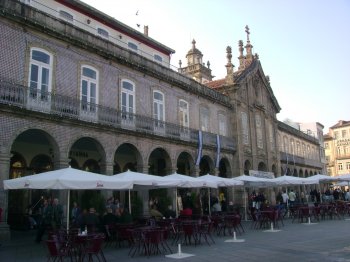
Capela da Senhora da Livração de Fandinhães
- heritage
Rua da Nossa Senhora da Livração
4625-253, Paços de Gaiolo
The current Chapel of the Senhora da Livração is what remains of the parish church of Saint Martin, significant testimony of the roaming teams of artists, in the Romanesque era. The cracks and the capitals match a solution adopted also in the churches of Santa Head, Águas Santas and Cedofeita. The nave of the Church of Saint Martin, ruined, was demolished in 1873 having been their stone reused in the expansion of the current Parish Church of St. Clement.
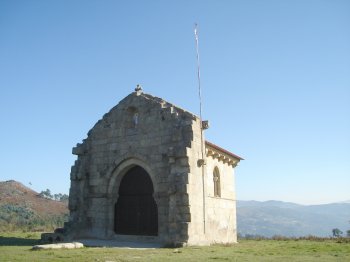
Antigo Convento e Igreja de São Francisco / Museu de Angra do Heroísmo
- heritage
Ladeira de São Francisco
9700-181, Angra do Heroísmo
Baroque convent where works, currently, the Museu de Angra do Heroísmo. It is an 18th century building which was built on two earlier closures Franciscan. Featuring sober lines, with facades where Tower the pilasters and the window openings. Attached to the convent, a church dedicated to Nossa Senhora da Guia, with the interior divided into three naves. Highlighting the gilded altarpieces and for some Baroque paintings.
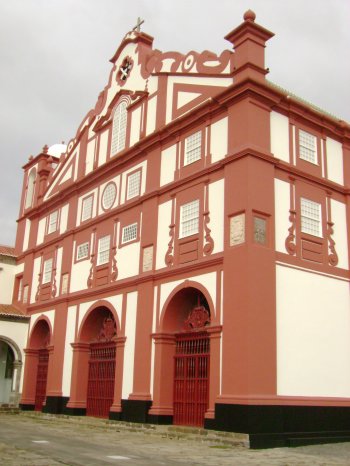
Chalet Biester
- heritage
Estrada da Pena, 24
2710, São Martinho
Construído em 1890 pela mão do arquiteto José Luís Monteiro, apresenta uma mistura de neogótico e neo-românico. O interior foi decorado por Luigi Manini, arquiteto e pintor de renome. O local onde se insere, a encosta norte da serra de Sintra, ajudam a criar a mística irreal do local.
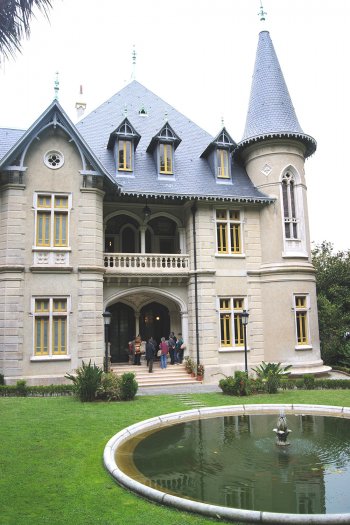
Castro de Frades
- heritage
Cambeses do Rio
5470-041, Cambeses do Rio
Fortified village located in a small shed at the bottom of the East mound of monte da Croa stump. It is a rugged spur where noticeable faint traces of a line of walls and a deep moat from the West side, currently used as a path. Inside are ceramic fragments of Roman chronology and indigenous. It is believed that was associated with the Castro of Croa stump, being possibly later and occupation also in the Roman era.
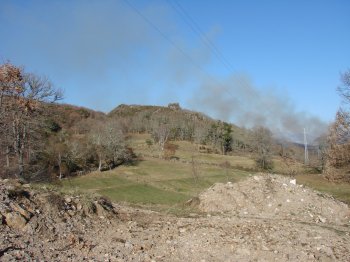
Castro de Nossa Senhora da Guia, Capela e Adro
- heritage
EM de Baiões-Bordonhos (a 2 Km de Baiões)
3660-013, Baiões
Castro dating back to the Bronze age, more exactly from the 7th century BC. This is located in a hilly elevation, on top of which stands a chapel of Oracle to Nossa Senhora da Guia. At the same site were also found archaeological remains denoting the existence of a fortified village. Of the latter, very little can be seen because it was grounded in 1995, during the construction of an access road.